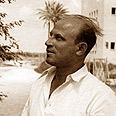
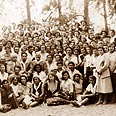
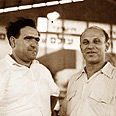
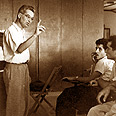
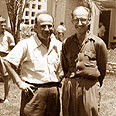
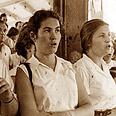
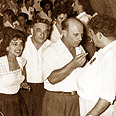
We won't stop singing: Choirs in Land of Israel
Shlomo Kaplan was one of the founders of choral music in the Land of Israel. Starting at the end of the 1920s, he established choirs and served as their conductor. In the 1950s, he was put in charge of the State of Israel's choruses and worked to advance Israeli music. First story in series
Shlomo Kaplan (1908-1974), one of the founders of choral music in Israel, was born in Russia and immigrated to the Land of Israel in 1927. He started off as a pioneer at the Ness Ziona "group", which founded Moshav Beit Oved, and simultaneously began studying music at the Leviim school managed by Prof. David Shor. At the same time he also sang at an opera choir managed by Mordechai Golinkin.
In 1929 he moved to Petah Tikva, where he served as the conductor of the Great Beit Yaakov Synagogue's choir. At the same time, he founded the Petah Tikva laborers' choir, the Maccabi Avshalom choir, and the choruses of the Sharon, Herzliya, Kfar Saba, Raanana, Magdiel, Kfar Malal and the area's kibbutzim. These choruses later united and became the Sharon Choir, which included more than 300 singers.
His work as an educator teaching the love of music began at the school for workers' children in Kfar Malal. Soon after he started teaching at the Pika school in Petah Tikva, at the Shalva high school and at the Gordon and Tshernikhovski educational institutions in Tel Aviv.
From 1942 he began conducting choruses in Tel Aviv as well, and in 1945 moved to the seaside city, where he lived till the day he died. In Tel Aviv he served as conductor of the choir of the Great Synagogue on Allenby Street, founded the Tel Aviv laborers' chorus, and served as the regular conductor of the opera choir managed by Mrs. Adis de Philip. Throughout the years he also served as the conductor of the Magen David and Kol Zion Legola choruses, and took part in the reestablishment of the Tzadikov Chorus along with Yitzhak Gratziani.
In the early 1950s he was appointed head of the music department at the Histadrut labor federation's executive committee. As part of this position, he was in charge of the choral activity in Israel and advanced choir singing in all collective agricultural labor settlements. He worked endlessly to develop Israeli music and produced generations of choir conductors and music lovers, in addition to being an outstanding artist himself.
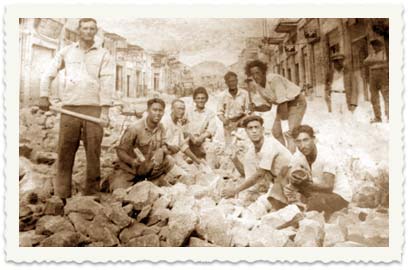
1. Shlomo Kaplan (fourth from the left), paving a road near Beit Romano, Tel Aviv, 1928
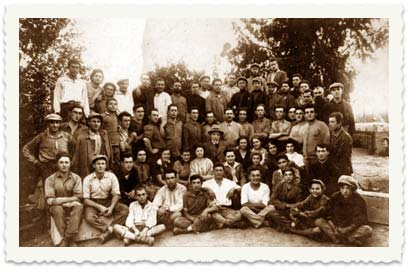
2. The fruit picking and packaging workers of Dr. A. Mazia's orchards in the 1929 season, Petah Tikva (Photo: Y. Alhones)
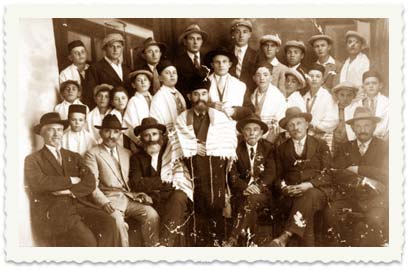
3. The council and choir of the Great Beit Yaakov Synagogue in Petah Tikva. Cantor A. Bakovsky and conductor S. Kaplan, 1928-1931 (Photo: N. Ben-Noam)
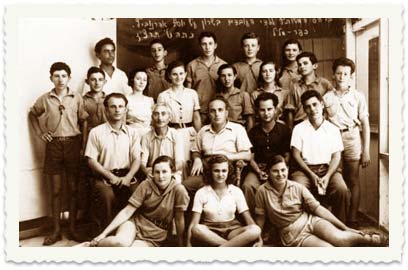
4. The school for workers' children named after Yosef Aharonovich, Kfar Malal. Ninth grade, 1937
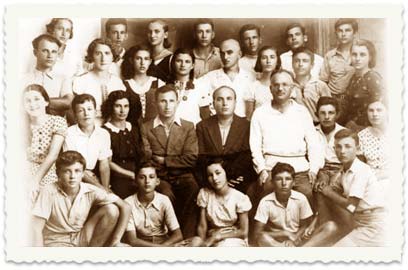
5. The school in Kfar Malal
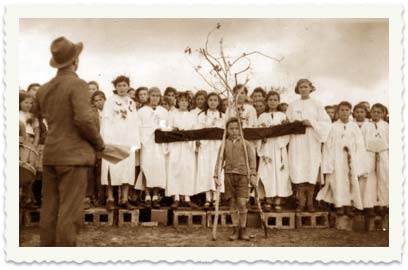
6. The Tu B'Shvat choir in the 1930s
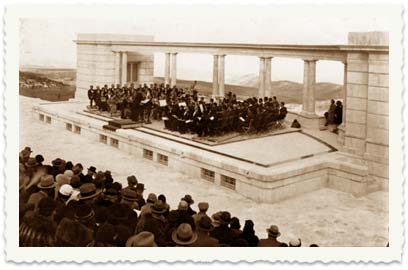
7. Mount Scopus, Jerusalem, ceremony marking the opening of the Hamaalot Theater. Conductor: Furdhaus Ben-Tzisi. Passover, 1933
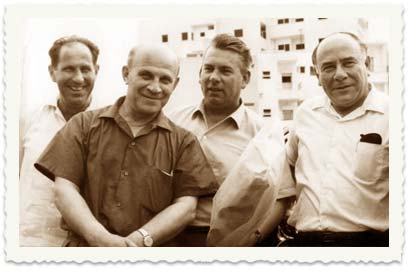
8. From the left: Conductor Henry Klausner, Shlomo Kaplan, Swiss conductor Dr. Hans Reimann, composer Emanuel Amiran
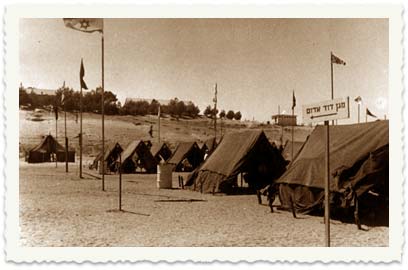
9. First choirs' convention camp at Givat Brenner, July 1952
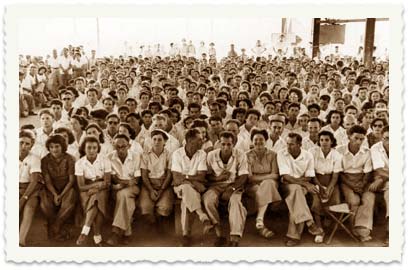
10. Choirs' convention at Givat Brenner, 1952
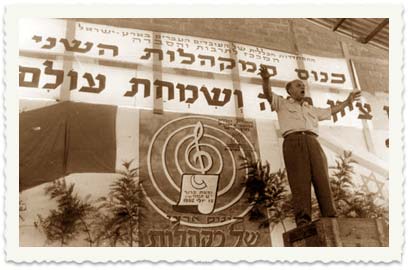
11. Shlomo conducts community singing at second national choirs' convention at Givat Brenner, July 12, 1952
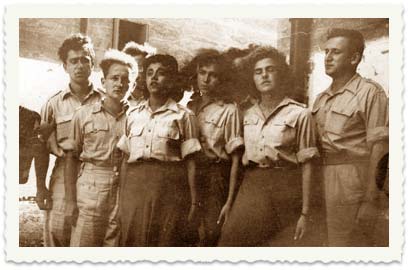
12. Singing the song "Dudu" at Nebi Yesha, May 12, 1952
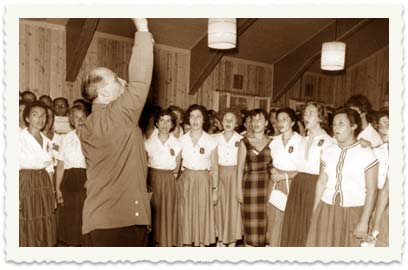
13. Performance at President Ben-Zvi's hut as part of the Zimriya events
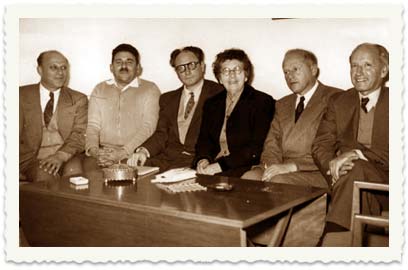
14. At the President's Residence, 1954. Rachel Yanait Ben-Zvi with the Zimriya organizers. From the right: Yedidia Admon, Israel Shapira, Rachel Yanait Ben-Zvi, Menachem Avidom, Yehuda Sharet, Shlomo Kaplan
- For all trips to the past – click here















